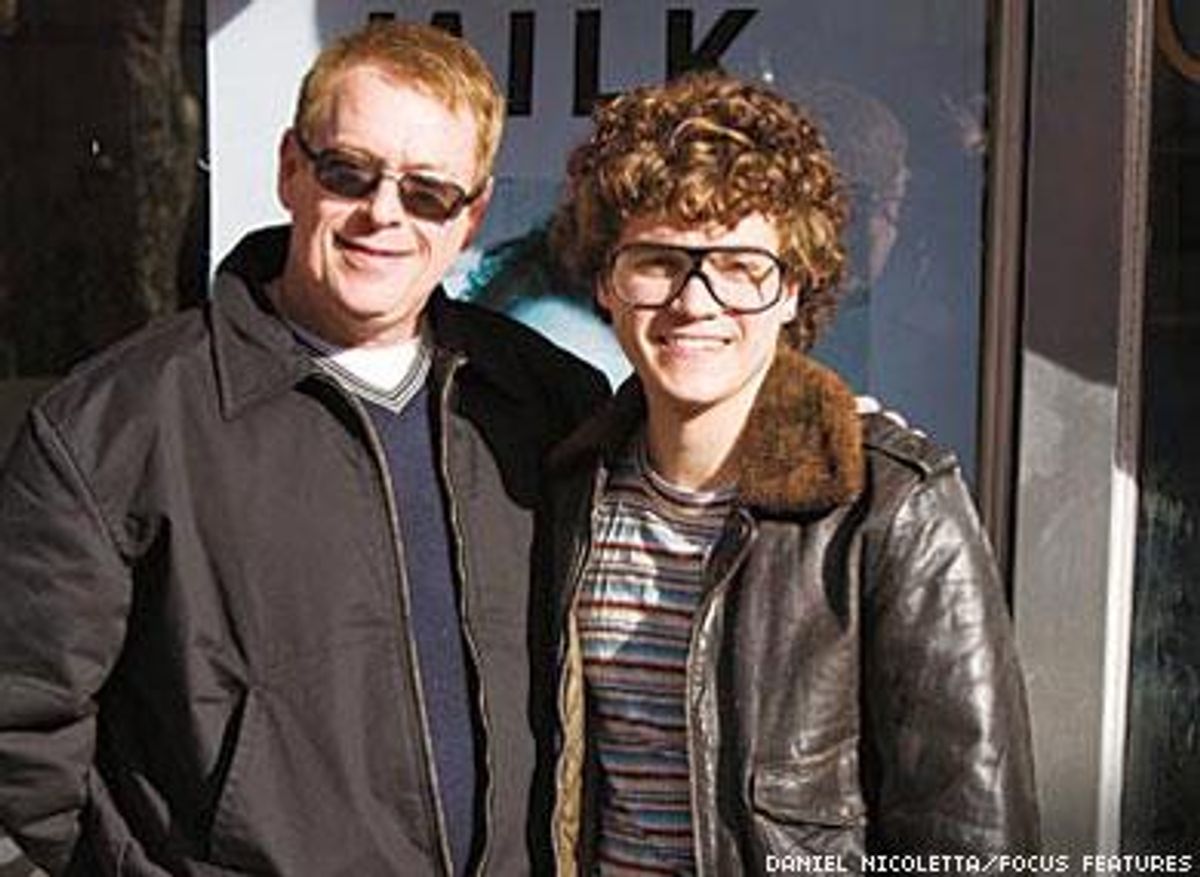Editors:
As a longtime reader of The Advocate, I am dismayed by the inclusion of James Kirchick's unfounded attack on Sean Penn. As historical consultant to the movie Milk, I am disheartened by the film's mention at all in the piece.
I love Sean. I know him better than anyone at your magazine, and certainly more than Mr. Kirchick (an assistant editor at another magazine, The New Republic). Most people will agree that Sean Penn is one of our greatest living artists, but he is also a tireless champion of human rights both in the U.S. and around the world.
I have spent a lot of time with Sean over the past year: on set every day for four months during the filming of Milk; traveling by bio-diesel bus with 150 young volunteers to New Orleans on the Dirty Hands Caravan (including a stop at the Southern Arizona AIDS Foundation); as well as private time with him and his family. I know Sean to be a kind, principled and smart man, and I am infuriated by this attack on his character.
The Nation's cover story was an adapted excerpt of Sean's essay/interview entitled "Mountain of Snakes." In fact, The Nation directed its readers to The Huffington Post, which ran Mountain of Snakes in its entirety on December 1st. Had Mr. Kirchick read Mountain of Snakes, he would have read the following excerpt:
On a 2005 family Christmas trip to Cuba, traveling under the auspices of religious tourism, my wife, our children and I were received in a private midnight meeting with then-President Fidel Castro and the great Colombian novelist and Nobel laureate Gabriel Garcia Marquez. Prior to our departure from the United States, I had sat my children down with documentaries of the Cuban revolution. In particular, my daughter had been offended by the history of oppression toward homosexuals in Cuba, and had made it clear to her father, that if offered the opportunity to meet directly with Castro, she would refuse it. Marquez invited us to his house. We walked in, and there, in the living room alone, sat Fidel Castro. Taken by surprise by the meeting, and being a polite then-14-year old, my daughter took her place in the room and waited her turn to attack.
Fidel grabbed my arm and seated me beside him. He began the conversation questioning my then 12-year old son about the curriculum in his public school. Did he know how far was the earth from the sun? Did he know voltage from kilowatts? The grilling went for a straight half hour, and Castro's demeanor was of the strict grandfather, hiding his affectionate smile behind his lips while demanding knowledge with curiosity. It seemed to me that he could feel my daughter's chilly demeanor. And at just the appropriate moment, still without a word from her, he asked what it is that's bothering her. She answered, "Why do you not offer the same human rights to homosexuals in Cuba as to heterosexuals? Why have you persecuted them?" She was ready for a fight. But no fight was forthcoming. Not even a hint of defensiveness. Castro seemed nothing but impressed with the question, patiently explaining that while homophobia had not been invented in Cuba, it had deep cultural roots, and that he and the revolution had made many mistakes as a result. But that there is an evolution involved in the process of change. And while they still made mistakes, there had been tremendous growth. (In 1979, Cuba abolished anti-sodomy laws. Today in Cuba, affirmation of same sex unions is scheduled for 2009, surpassing the pace of U.S. social reforms, and sexual re-assignment surgeries come compliments of the public health service) My daughter was disarmed and it was my turn.
That's what Sean has to say. Let me be clear, Sean Penn does not endorse dictators in any way, shape or form. (And by the way, like him or not, Hugo Chavez is a democratically elected official.)
As Advocate readers know only too well, our own history haunts us. Bowers v. Hardwick, 1986, was a United States Supreme Court decision that upheld the constitutionality of a Georgia sodomy law criminalizing oral and anal sex in private between consenting adults. Seventeen years later the Supreme Court finally overruled Bowers in Lawrence v. Texas, 2003, and held that such laws are unconstitutional. Those who would cast stones at Castro's Cuba should remember that people could be arrested for gay sex in the US as recently as 2003.
Sean Penn is a citizen of the world. He harbors a tireless curiosity and a healthy skepticism, so he goes out and ascertains things for himself firsthand. His explorations as a journalist have put a spotlight on some of the biggest issues of our time: in Iraq, Iran, Venezuela, Cuba, and -- closer to home -- New Orleans. His visits and dispatches have opened avenues of communication and encouraged dialogue.
Since the film Milk has been dragged into this, I'll simply add that Sean Penn's deeply felt portrayal of gay rights activist Harvey Milk has re-energized our fighting spirit, inspired thousands of young LGBT activists and focused public attention on the struggle of lesbian, gay, bisexual and transgender people in our continuing fight for equal rights.
Sean Penn is a man who has completely embraced our community and our cause.
Cleve Jones Palm Springs


















































































Fans thirsting over Chris Colfer's sexy new muscles for Coachella